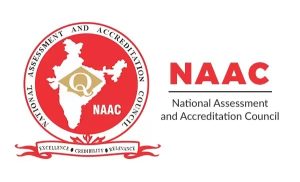One Day National Seminar on Bridging Education Divides through MOOCs and OERs
(November 23, 2019)
National Law University Delhi in association with NAAC organised a ‘One Day National Seminar on Bridging Education Divides through MOOCs and OERs’, on 23rd November 2019. The stakeholders from all over the country deliberated on the emerging concept of open pedagogy and education. The one day seminar was aesthetically designed into two technical sessions, namely Blended Learning and Academia: Strategies and Models for MOOCS & OERS and Approaches of IPR and its Obligations on MOOCS and OERS, besides the inaugural and valedictory sessions. The seminar was attended by 130 participants from 10 states of the country along with over 25 eminent experts invited as speakers.
The inaugural session was graced by Prof. (Dr.) Ranbir Singh, Hon’ble Vice Chancellor, National Law University Delhi; Prof. (Dr.) V. Vijayakumar, Hon’ble Vice Chancellor, NLIU Bhopal; Mr. Nageshwar Nath, Joint Director & Project Coordinator, SWAYAM and SWAYAM Prabha, CEC-UGC; Prof. B. D. Kumbar, Professor, Karnataka University & President ILA; and Prof. G. S. Bajpai, Professor & Registrar, National Law University Delhi.
A Seminar Volume entitled ‘Bridging Educational Divides: MOOCs and OERs’, was released by the dignitaries.
The first Technical Session was chaired by Prof. (Dr.) Ramesh Gaur, Professor and Dean IGNCA. Sharing his expertise in the open learning pedagogies he addressed the session by citing the importance of MOOCs and OERs and their need in the modern day teaching and learning, through a panel discussion over a platform with a national outreach. This was followed by addresses by the invited speakers Prof. Uma Kanjilal, Professor & Director, Centre for Online Education, IGNOU; Dr. Jagdish Arora, Former Director INFLIBNET & Advisor (NBA); Mr. Nageshwar Nath, Joint Director, Project Coordinator – SWAYAM & SWAYAM Prabha, Consortium for Educational Communication; and Dr. Nabi Hasan, Librarian, IIT Delhi & Coordinator ARPIT course.
The second technical session was chaired by Prof. (Dr.) A. P. Singh, Professor and Dean USLLS, GGSIP University, welcomed the participants to deliberate on IPR related approaches to MOOCs and OERs. The invited speakers for this session were Dr. Tariq Ashraf, University Librarian, Jamia Millia Islamia; Dr. Gurujeet Singh, Associate Prof. USLLS, GGSIPU; Dr. R.K. Srivastava, Consultant, Judges library, Supreme Court of India; Dr. Sudhir Arora, Former University Librarian, IGNOU; and Dr. Akash Singh, Asst. Librarian, NLUD.
The valedictory session was graced by Eminent speakers as dignitaries, namely Prof. Ranbir Singh, Vice Chancellor, NLU Delhi; Dr. Pankaj Mittal, Secretary General Association of Indian Universities; and Mr. G. R. Raghvendra, Joint Secretary, Ministry of Law and Justice, Govt. of India.
The seminar came up with following recommendations:
1. MOOCs and OERs must be treated as responsibilities of information professionals for wider dissemination.
2. Government Bodies responsible to create MOOCs must officially involve information professionals for wider dissemination of information about MOOCs and OERs.
3. Information professionals must be actively involved in feasibility audit to know importance and output study of MOOCs programme within their institute for getting feedback for enhancing quality of MOOCs contents.
4. Open licenses like Create Commons must be placed in copyright laws for more utilisation of open publishing.
5. Various workshops for training information professionals must be organised at various part of country imparting trainings for dissemination of MOOCs and OERs developed not only in India but outside India too.
6. Library professionals must be educated about open licenses system and policies to guide academic community to publish in open access environment for generating more OERs for society.
7. Library professionals should engage more in design and development of MOOCS and OERs and at the same time a wider publicity should be done about such initiatives amongst users. These resources and courses are also important for lifelong learning and hence meet the requirements of Education 4.0.
8. Quality audit of MOOCs and OERs must be done for contents uploaded or created under such initiatives. After a proper assessment, a well-planned strategy may be implemented for enhancing the quality of the contents. Live recording and webcast of regular class lectures from the institutions like IISc, DU JNU, IITs, IIMs, and other reputed institutions may also be considered.





